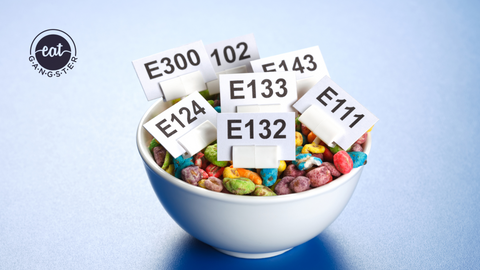
We get lots of inquiries about coffee and whether it is compliant with the AIP diet. We all want it to be, but unfortunately, due to its caffeine content, it is not permitted on the AIP diet. And so, people begin looking for replacements for their favorite coffee :-). Enter tea!
What is the AIP Diet?
To back up a bit for our welcomed newbies out there, the Autoimmune Protocol (AIP) diet is an elimination-based eating plan designed to help reduce inflammation and manage autoimmune conditions by removing foods that may trigger flare-ups. It’s a stricter version of the Paleo diet and eliminates grains, dairy, legumes, processed foods, and certain vegetables, including nightshades.
For coffee lovers following the AIP diet, tea becomes a great alternative. For tea lovers following the AIP diet, the good news is that many teas are allowed, but there are a few guidelines to keep in mind.
What Kind of Tea Is Allowed on the AIP Diet?
When following the AIP diet, herbal teas are generally permitted, as they are not made from the leaves of the Camellia sinensis plant (which produces black, green, and white teas). The focus is on soothing, anti-inflammatory teas that help support gut health and reduce stress. Some of the most popular options include:
- Chamomile Tea: Known for its calming effects, chamomile tea is gentle on the digestive system and can help with sleep.
- Peppermint Tea: This tea is excellent for digestion and can also help relieve nausea and bloating.
- Ginger Tea: A potent anti-inflammatory, ginger tea can help reduce inflammation, improve digestion, and ease nausea.
- Lemon Balm Tea: Known for its relaxing properties, lemon balm tea may help alleviate stress and anxiety while supporting digestion.
- Turmeric Tea: Turmeric contains curcumin, a powerful antioxidant and anti-inflammatory compound. This tea can help reduce joint pain and inflammation, making it a great addition to an AIP-friendly diet.
- Rooibos Tea: Naturally caffeine-free and packed with antioxidants, rooibos tea is soothing and rich in minerals like calcium, magnesium, and zinc.
While black, green, and white teas (which are derived from the Camellia sinensis plant) are not typically allowed on AIP during the elimination phase due to caffeine and potential irritation, they can often be reintroduced after healing has occurred in some cases.
Nutrient Benefits of Tea
Tea, especially herbal varieties, can offer a wealth of health benefits, many of which align perfectly with the goals of the AIP diet. Some of the key benefits include:
- Anti-inflammatory properties: Teas like ginger, turmeric, and chamomile are renowned for their ability to reduce inflammation, which is crucial for managing autoimmune conditions.
- Digestive support: Many herbal teas, such as peppermint and ginger, promote healthy digestion by soothing the stomach lining and reducing bloating and discomfort.
- Antioxidants: Herbal teas like rooibos and chamomile are packed with antioxidants that help combat oxidative stress and protect against cell damage.
- Stress relief: Teas like lemon balm and chamomile have a calming effect on the nervous system, which can help reduce stress and improve sleep quality—important factors for those with autoimmune diseases.
- Gut health: Several herbal teas, including ginger and turmeric, are beneficial for gut health by promoting a balanced microbiome and reducing gut inflammation, which is especially important on the AIP diet.
By selecting the right teas and making them a regular part of your AIP routine, you can enjoy both soothing moments of relaxation and a natural boost to your overall health.
There are a handful of companies out there making great tea and coffee alternatives. One of our favorites is SIPS Herbals. Their teas are all AIP compliant, and in fact, are designed to be more of a coffee alternative. They are a wonderful option if you are looking to replace coffee or any of your caffeinated teas!



